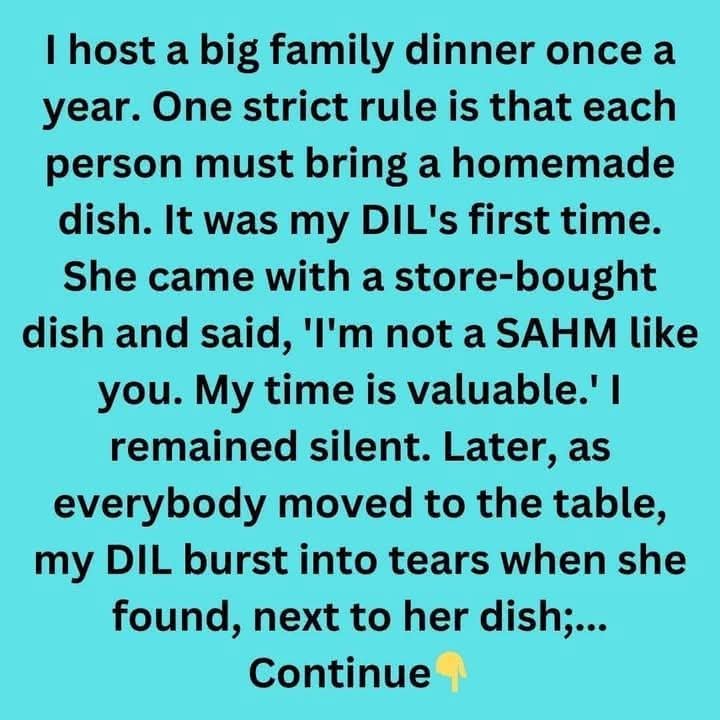Hosting a yearly family dinner where everyone contributes a homemade dish is a cherished tradition that likely holds significant meaning for you and your family. It’s a time for connection, sharing, and showcasing culinary skills, making it understandable that you would want to maintain the integrity of this custom. However, the situation with your daughter-in-law (DIL) brings to light the complexities of family dynamics, differing values, and the varying roles people play in their lives.
When your DIL attended for the first time, her choice to bring a store-bought dish and her comment about not being a stay-at-home mom (SAHM) may have felt dismissive of the effort you put into the dinner. It’s clear that her remark struck a nerve, leading you to respond with a pointed comment about the plates. While your intention might have been to highlight the importance of making time for family and respecting traditions, the delivery of that message came off as hurtful.

Your DIL’s emotional reaction—crying and trying to explain herself—indicates that she may have felt cornered or judged, which can be particularly sensitive in family settings where expectations are unspoken but deeply felt. Your statement about respect, while rooted in your values, might have felt like an attack on her choices and priorities, leading to a rift between you and your son.
Your son’s response, demanding a public apology, suggests that he feels caught between his wife and mother. This is a tough position for him, and it’s understandable that he would want to defend his partner. The fact that it’s been a week without communication indicates that this incident has created a significant emotional divide that both sides are struggling to navigate.
In reflecting on whether you overreacted, it’s important to consider the broader context of family relationships. While your feelings about the dinner and the importance of homemade contributions are valid, the way you addressed the situation could have been more tactful. Instead of using a passive-aggressive approach, a more open conversation about family traditions and expectations might have fostered understanding rather than hurt.
Moving forward, it might be beneficial to reach out to your son and DIL, acknowledging the tension and expressing a desire to mend fences. A heartfelt conversation could help clear the air, allowing both sides to express their feelings and perspectives. After all, family gatherings are about connection, and finding a way to bridge the gap could enhance the spirit of your cherished tradition.








Leave a comment